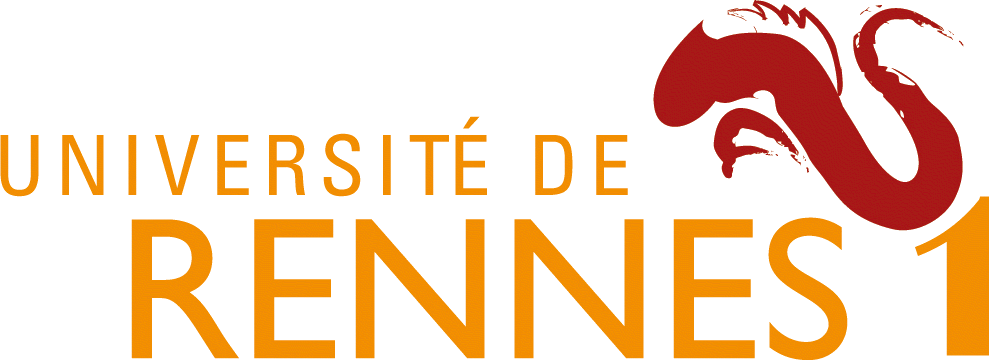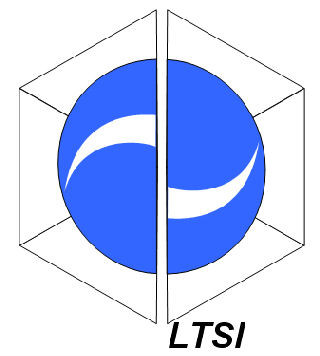News
Members
Publications
Software / Data
Job offers
Images / Videos
Collaborations
Conferences
Lab meetings: "Les partages de midi"
Practical information
Members Area
Next conferences we are in …

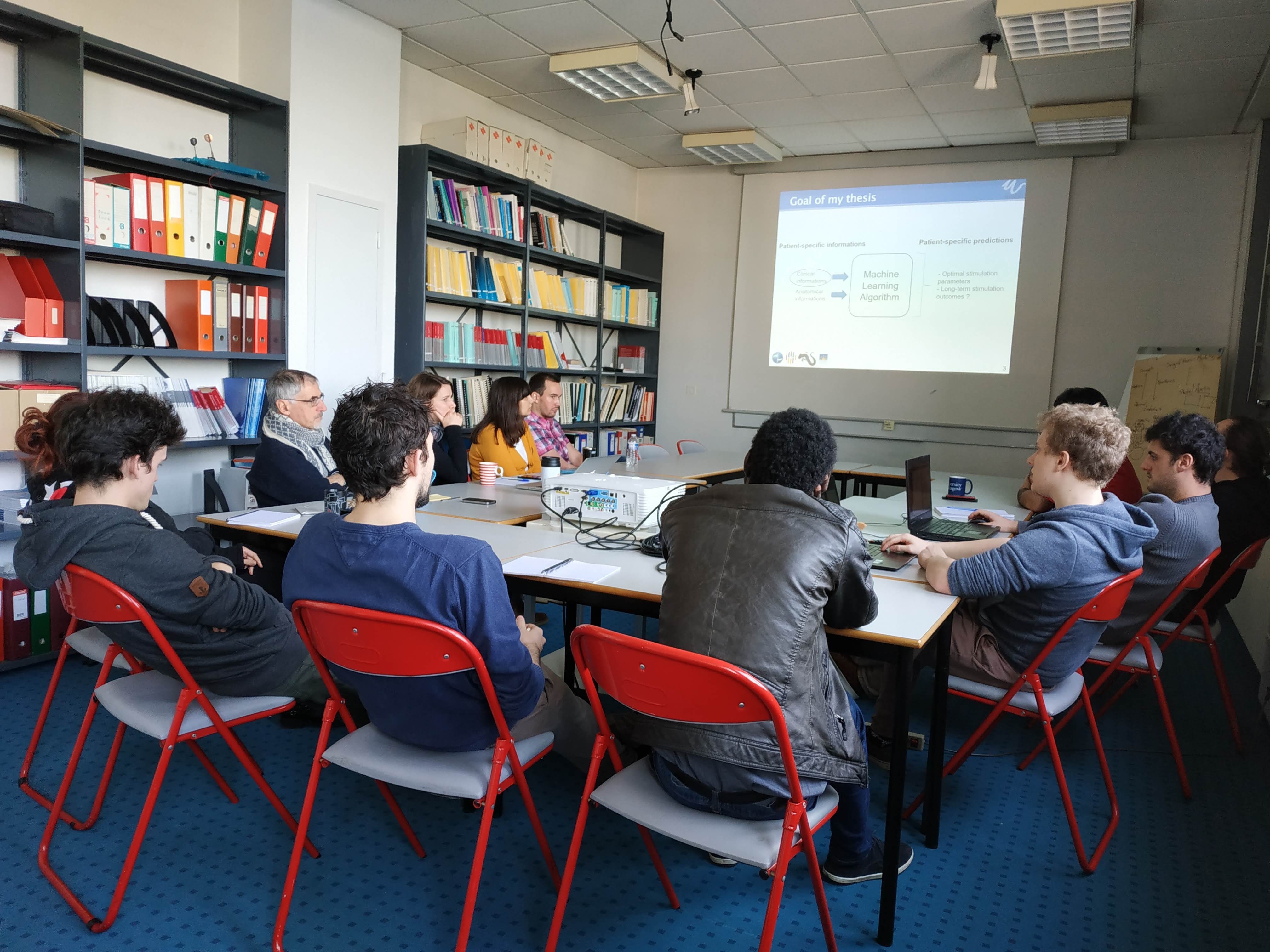
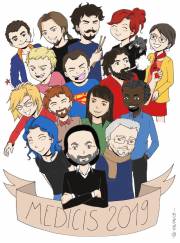
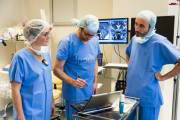
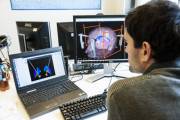
This shows you the differences between two versions of the page.
| Next revision | Previous revision | ||
|
presentation:index [2009/09/23 10:29] aabadie créée |
presentation:index [2012/02/06 03:29] (current) |
||
|---|---|---|---|
| Line 1: | Line 1: | ||
| - | ===== Vision, Action et Gestion d'Informations en Santé ===== | + | <html> |
| + | <div class="pageTitle" style="background:steelblue;color:white;"> | ||
| + | MediCIS - UMR Inserm U1099 - LTSI Research Team | ||
| + | </div> | ||
| + | </html> | ||
| - | L'Unité/Projet VisAGeS - U746 est une équipe de recherche reconnue conjointement par l'INSERM (Institut National de la Santé et de la Recherche Médicale) et l'INRIA (Institut de Recherche en Informatique et Automatique) et appartenant à l'IRISA (UMR CNRS 6074, Université de Rennes I). Elle est située à Rennes, France sur les campus de médecine et de sciences. | + | \\ |
| - | === Contexte de recherche === | + | == Modélisation des connaissances et processus interventionnels pour l’aide à la décision (Modeling of Interventional Knowledge and Processes for Decision Support) == |
| - | + | ||
| - | L'Unité/Projet VISAGES U746 travaille dans le domaine du développement de nouveaux algorithmes de traitement informatique des images médicales et des interventions assistées par ordinateur. {{ :ijprai24.jpg?200}} | + | |
| - | + | ||
| - | === Objectifs méthodologiques === | + | |
| - | + | ||
| - | Sur le plan méthodologique, nos recherches concernent la fusion d'informations en santé notamment dans le domaine du recalage non rigide d'images (par exemple étude des phénomènes dissipatifs ou évolutifs en chirurgie), ou encore en analyse d'images médicales pour mieux intégrer des modèles a priori, ou enfin dans le domaine de la représentation des informations médicales autour des technologies du web. | + | |
| - | + | ||
| - | [[:visages:themes|Nos thèmes de recherche]] | + | |
| - | + | ||
| - | + | ||
| - | === Applications === | + | |
| - | + | ||
| - | Nous nous intéressons principalement aux applications cliniques et plus particulièrement aux pathologies du système nerveux central, avec un effort particulier pour l'analyse des images de sclérose en plaques et pour la neurochirurgie guidée par l'image à travers l'imagerie per-opératoire. Au-delà, notre activité concerne l'épilepsie (notamment sous son volet chirurgical), les démences et les maladies dégénératives, ou encore les TOC. | + | |
| - | + | ||
| - | [[:visages:applications | Nos applications ]] | + | |
| - | + | ||
| - | === Mots clefs === | + | |
| - | + | ||
| - | Imagerie Médicale, Neuroinformatique, Neuroimagerie, Technologies Chirurgicale, Ontologies Médicales, Fusion de données, Traitement d'images, Maladies neurologiques, Modélisation d'organes et de pathologies, Gestion d'informations en santé. | + | |
| - | + | ||
| - | \\ | + | |
| \\ | \\ | ||
| - | ---- | + | === Introduction === |
| + | MediCIS is a research team of the [[http://www.univ-rennes1.fr|University of Rennes I]], jointly affiliated to [[htp://www.inserm.fr|INSERM]] (National Institute of Health and Scientific Research). MediCIS belongs to the [[http://www.ltsi.univ-rennes1.fr|LTSI Institute]] (UMR Inserm 1099), and is located in Rennes, France at the University Medical School. | ||
| - | ** [[visages:index|Espace privé]] ** \\ | + | === Context of the research === |
| - | Toute l'information réservée aux membres de l'équipe | + | |
| - | ** [[visages:visages_public:start|Espace public]] ** \\ | + | MediCIS activities concern the development of new information science algorithms dedicated to the modeling of surgical knowledge and processes.Our objective is to study methods for modelling and analysis surgical and interventional knowledge and processes allowing the development of a new generation of computer assisted surgical (CAS) systems with full decision-making support. To date, most computer assisted surgical systems focused on providing the clinician with pre and intra operative multimodal medical images and signals of the patient, whereas it is well admitted that the decision making process additionally requires information and knowledge. Throughout the peri-operative workflow, from diagnosis, planning, intervention, and postoperative evaluation, the clinician relies not only on images, but on multiple different sources of data, information, and knowledge to take his/her surgical decision. Some sources are implicit; some are explicit. Implicit ones need to be made explicit and available in digital form, in order to enable automating processing and reasoning. Knowledge is usually broken down into conceptual and procedural knowledge. For instance, some knowledge is related to anatomy; some knowledge is related to his/her surgical practice, and some stems from the literature. Modelling approaches enable the explicit representation and formalization of these sources and, consequently, facilitate the system development to support the decision-making process. Whereas modelling of patient information from data is widely studied, few research address modelling of knowledge involved in the surgical decision process. |
| - | Espace Public de présentation de l'équipe\\ | + | |
| - | \\ | + | |
| - | ====== Bienvenue sur le Wiki Visages ====== | + | === General Methodological Objectives === |
| + | We are studying and developing new methods to construct models of both domain and procedural knowledge in order to empower the decision making process. These knowledge models are build either from analysis of a large ensemble of patient specific models stored in data repositories, or from formalization of expert’s knowledge or literature. Such models combine and synthesize knowledge used during the surgical decision making process. We address the issue of modelling through two complementary approaches: numeric with data fusion inspired approaches and symbolic with conceptual modelling and formal ontologies. There are three types of decision that may be supported by the models and the systems we both want to develop: managerial decision, process of care, and outcome-based decision. The main long-term challenge we want to address is to enable patient-adapted anticipation and, somewhat, prediction of the interventional or surgical procedure and its outcome. To design the future of the operating room focusing on creating real surgical decision making support systems. For personalized and predictive model-guided interventional and surgical procedures. Our ultimate goal is to address the need for model-guided intervention that is currently emerging at the intersection between the Virtual Physiological Human and Personalized, Predictive and Preventive Medicine. | ||
| - | Voici le [[start|wiki de l'équipe VisAGeS]] propulsé par [[http://wiki.splitbrain.org/wiki:dokuwiki|Dokuwiki]]. | + | [[:presentation:themes|more details on our scientific topics]] |
| - | Vous pouvez commencer par vous familiariser avec la [[playground:syntax|syntaxe]] de [[playground:dokuwiki|Dokuwiki]] dans le [[playground:playground|bac à sable]].\\ | ||
| - | \\ | ||
| - | ---- | ||
| - | \\ | ||
| - | **Organisation du wiki :** | ||
| - | - [[visages:environnement:start|Environnement de travail]] | + | === General Application Domains === |
| - | - [[visages:devs:start|Développement logiciel]] | + | Main clinical applications are on cranial and spinal surgery with special focus on functional neurosurgery (such as Deep Brain Stimulation), surgery of brain tumors, spinal surgery, and interventional neuroradiology. |
| - | - [[visages:workgroup:start|Groupes de travail]] | + | |
| - | - [[visages:liens|Liens utiles]] | + | |
| + | [[:presentation:applications | more details on our application domains ]] | ||
| - | ---- | + | === Keywords === |
| - | \\ | + | // |
| - | **[[visages_members:start | Membres de l'équipe]]** | + | Computer Assisted Surgery, Medical Ontologies, Data Fusion, Image guided Surgery, Image Processing, Surgical Process Models, Knowledge Modeling, Surgical Workflow, e-health & HealthGrids, Decision Support Systems// |
| - | \\ | + | |
| - | \\ | + | |
| - | **[[visages_private:start | Espace privé de l'équipe]]** | + | |
| - | \\ | + | |

